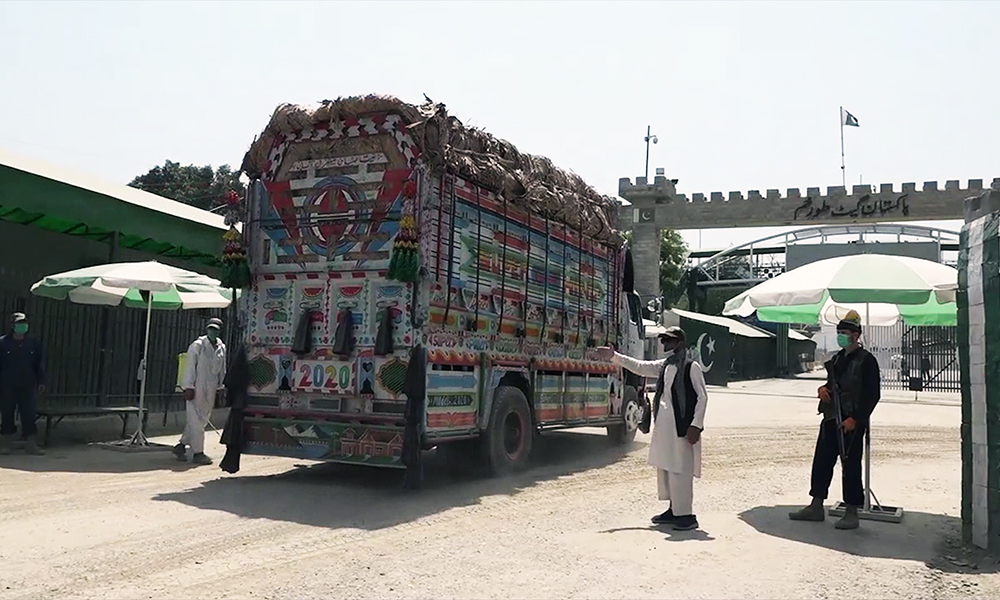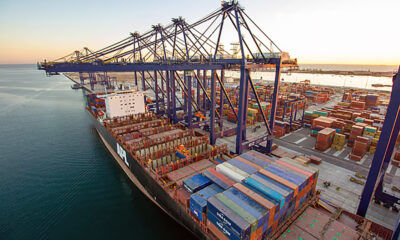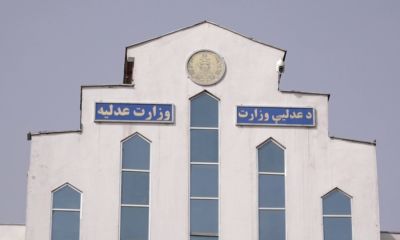Business
Afghans using crypto to ‘safeguard’ their savings

Afghans are reportedly acquiring digital assets that they use to preserve their savings and to lessen the chance of having their money seized by the new authorities, Bloomberg reported this week.
According to Bloomberg, the demand for digital currencies in Afghanistan has surged as some Afghans look to buy stablecoins like tether because they are pegged to the U.S dollar.
The report quotes one 26-year-old Afghan resident, Habibullah Timori, as saying they the demand for cryptocurrencies is high.
“During other crises, people stored their cash and jewellery in the ground or under their pillows. This time, they’ve decided to keep it buried in crypto,” he said.
The report also cites another 26-year-old Afghan, Naser Ali, who claims to have converted $30,000 stashed in his safe to USDT.
Ali said he regrets not having known about cryptocurrencies sooner, Bloomberg reported.
Despite the surging demand for cryptocurrencies, exchanges like Maihan say the U.S. sanctions on Afghanistan are making it difficult for residents to buy digital currencies. Further, residents buying from local crypto exchanges are charged a commission of 1.5% for every crypto transaction.
Business
Afghan and Iranian provincial governors discuss expanding trade and transit cooperation

Noor Ahmad Islamjar, Governor of Herat, led a delegation to the Afghanistan–Iran border, where he held talks with Gholamhossein Mozaffari, Governor of Iran’s Khorasan Razavi province, on strengthening trade and transit relations between the two countries.
During the meeting, both sides discussed measures to enhance facilitation in trade and transit, increase the movement of freight vehicles, accelerate the transfer of goods, and address existing challenges at the border crossing.
Islamjar underscored the importance of expanding economic and trade ties between Afghanistan and Iran, calling for greater cooperation to ease procedures for traders and improve transit operations.
Mozaffari welcomed the expansion of bilateral trade and transit cooperation and said Iran is working to strengthen joint coordination and improve commercial activities at the Islam Qala border.
The meeting followed previous engagements between the two sides and aimed to boost economic cooperation, increase trade volumes, and provide greater facilitation for traders and freight drivers operating between Afghanistan and Iran.
Business
Afghanistan’s exports drop sharply in December 2025: World Bank
The decline was largely caused by Pakistan’s crossing closure, which disrupted traditional trade routes and led to delays as exporters attempted to reroute shipments to India and Central Asia.

Afghanistan’s exports declined significantly in December 2025, falling by 25 percent month-on-month and 15 percent year-on-year to $162 million, according to a World Bank report.
The decline was largely caused by Pakistan’s crossing closure, which disrupted traditional trade routes and led to delays as exporters attempted to reroute shipments to India and Central Asia.
India emerged Afghanistan’s largest export destination, accounting for 61.2 percent of exports in December.
Afghanistan’s imports remained robust at $1.2 billion, increasing by 5 percent month-on-month.
On a year-on-year basis also, imports grew by 5 percent, reflecting sustained domestic demand linked to the influx of returnees.
According to the report, in December 2025, the afghani (AFN) appreciated modestly by 0.4 percent month-on-month against the US dollar. On a year-on-year basis, the afghani recorded a solid appreciation of 5.8 percent reflecting continued market stability.
Afghanistan’s domestic revenue collection reached AFN 24.1 billion (approximately $363.1 million) in December, representing a 2.9 percent month-on-month increase and an 18 percent rise year-on-year.
Business
Gold surpasses $5,000, yen strengthens on intervention fear

Gold surged past $5,000 per ounce on Monday, buoyed by safety flows amid dollar weakness following a turbulent week where tensions over Greenland and Iran rattled investors, while markets remained on tenterhooks after violent spikes in the yen.
The yen rose over 1% to 153.99 per dollar as of 0427 GMT, after sharp spikes on Friday sparked speculation over potential intervention. The New York Federal Reserve conducted rate checks on Friday, sources told Reuters, raising the chance of joint U.S.-Japan intervention to halt the currency’s slide.
“The market’s inclination is to short the yen but the possibility of co-ordination means it no longer is a one-way bet,” said Prashant Newnaha, senior rates strategist at TD Securities in Singapore.
The prospect of joint intervention to support the yen pulled the dollar lower and broadly lifted other currencies.
Japan’s Nikkei dropped about 2% while S&P 500 futures fell 0.25% and European futures were 0.27% lower as traders awaited the Federal Reserve’s policy meeting later in the week.
U.S. President Donald Trump provided temporary relief to markets last week by reversing tariff threats and downplaying potential forceful action against Greenland. However, further sanctions targeting Iran have reinforced market anxiety.
Increased U.S. pressure against Iran is pushing oil prices higher and lifting safe-haven gold to record peaks. Precious metals, including silver , have surged in a blistering rally so far this year, also aided by a softer dollar.
INTERVENTION CHATTER KEEPS YEN ALOFT
While authorities in Tokyo declined to comment on the yen’s wild swings, sources told Reuters about the rate checks on Friday, leaving traders on edge at the prospect of an intervention that could come any time.
Japanese Prime Minister Sanae Takaichi said on Sunday her government will take necessary steps against speculative market moves.
Carlos Casanova, senior Asia economist at UBP, said the mere expectation of potential intervention could, in itself, contribute to some strengthening of the currency.
“The Japanese yen is likely to stabilise to some extent – though the catalysts for significant appreciation remain limited – while long-term yields are expected to face continued pressure at their current elevated levels.”
A steep bond market rout in Japan last week had put the spotlight on Takaichi’s expansionary fiscal policy as she called a snap election that is due for February 8. The bond market has since calmed somewhat, but investors remain jittery.
The yen was broadly firmer against other currencies too on Monday, inching away from the record low against the euro and Swiss franc and multi-decade lows against sterling.
Charu Chanana, chief investment strategist at Saxo, said the rate-check style warning could help reset positioning and remind the market there’s a line near 159–160.
“With the dollar starting to look softer, this is actually a cleaner window for Japan to lean against yen weakness. Intervention works better when it’s going with the broader USD tide, not fighting it.”
The dollar index , which measures the U.S. currency against six rivals, fell as much as 0.2% to a four-month low of 96.996 after dropping 0.8% on Friday in its biggest one-day drop since August.
Investor focus this week will also be on the Fed. The central bank is expected to hold rates steady at a meeting overshadowed by a Trump administration criminal investigation of Fed Chair Jerome Powell, whose term ends in May.
In commodities, oil prices were little changed after rising about 3% on Friday, with traders weighing the impact of Trump pressuring Iran through more sanctions on vessels that transport its oil.
Brent crude futures were flat at $65.91 a barrel, while U.S. West Texas Intermediate crude stood at $61.1 per barrel.
-

 Business4 days ago
Business4 days agoAfghanistan sends gold to Uzbekistan for processing
-

 Sport2 days ago
Sport2 days agoThrilling battles await as AFC Futsal Asian Cup Indonesia 2026 set to kickoff in hours
-

 Latest News5 days ago
Latest News5 days agoFailed Afghan asylum seekers need to return home, Sweden’s migration minister says
-

 Sport3 days ago
Sport3 days agoAfghanistan futsal team arrives in Indonesia ahead of Asian Cup
-

 Regional3 days ago
Regional3 days agoAirlines reroute, cancel flights as tensions ramp up over Iran
-

 Sport3 days ago
Sport3 days agoJapan defends AFC U-23 Asian Cup title with dominant win over China
-

 Latest News4 days ago
Latest News4 days agoUzbekistan says security concerns, including Afghanistan, behind joining Trump’s Board of Peace
-

 Business3 days ago
Business3 days agoPakistan reports 56% drop in exports to Afghanistan in second half of 2025
























